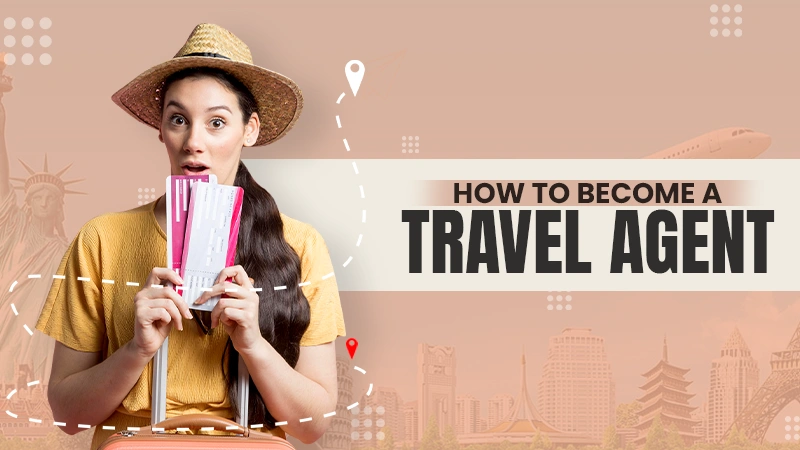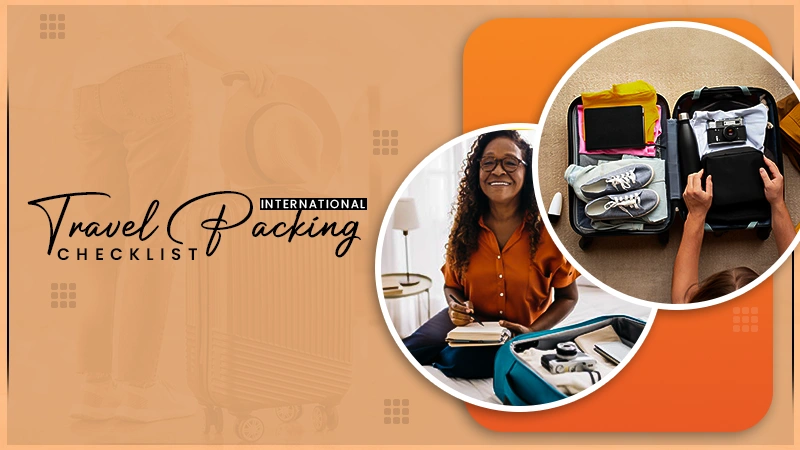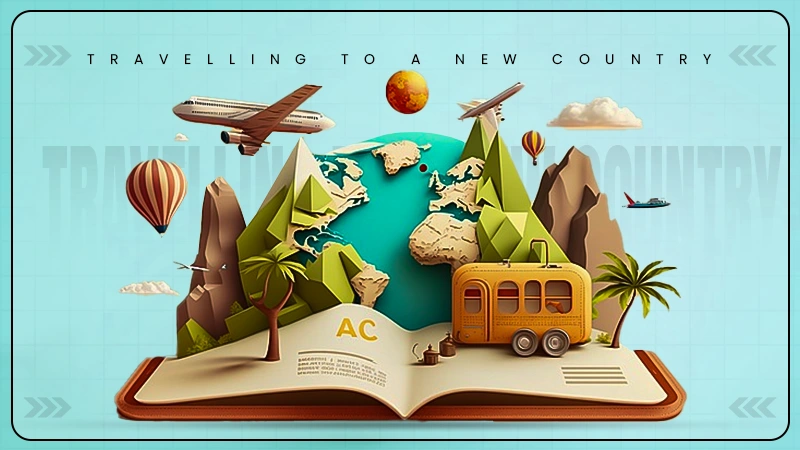

Delving into the exciting world of travel and tourism as a professional travel agent can be a fulfilling, flexible, and lucrative career choice. As you help people explore new horizons, immerse in different cultures, or plan their dream vacations, the satisfaction derived is immense.
KEY TAKEAWAYS
- You must research the travel industry prior to getting your hands on it.
- Getting a certification is both necessary and beneficial for you to establish your own authenticity and trust with the clients.
- As an agent, you can go freelance or work with a professional organization to give a head-start to your career.
But how does one get started on this path? What steps do you need to take to become a successful agent? This comprehensive guide addresses these questions.
10 Steps to Becoming an Incredible Travel Agent

Here, we’ll outline key stages of your journey, from researching the industry right through to continuous learning to remain competitive. Let’s embark on this exciting voyage together!
Step 1: Research the Industry
Before taking your initial steps in becoming a travel guide, it’s paramount to familiarize yourself with the ins and outs of the travel and tourism industry through research. Understanding how agencies function and their operations will provide you with a picture of your future role.
In addition, learning about the current state of the market, upcoming trends, notable competitors, and potential challenges you may face is decisive when attempting to break into this industry.
Step 2: Determine Your Niche
Once you’ve gained a working knowledge of the broader and tourism industry, the next step is to identify your specific area of focus or niche. Concentrating on a particular niche allows you to provide tailored services and expertise that cater directly to a specific audience’s needs.
For example, if you’re interested in planning magical experiences for families at a very popular theme park, Park Savers’ guide to becoming a Disney agent can be an excellent resource.
Step 3: Gain Education
Acquiring formal education related to tourism or customer service fields is a valuable step in becoming a guide. This can come in the form of degrees, diplomas, or even short courses. Learning about subjects such as geographical awareness, ethics of tourism, or business management can equip you with the necessary skills required for the job.
Pursuing education can help you gain credibility and enhance your level of professionalism with clients. Plus, it broadens your professional horizon and helps you navigate paths in the industry.
Step 4: Obtain Experience
Gaining practical experience in the travel industry is a major step that follows education. Working within the tourism sector, particularly through internships or part-time jobs at well-known agencies in your neighborhood, equips you with direct knowledge and skill sets.
From understanding how to book arrangements to negotiating deals with vendors, this exposure allows you to see first-hand the multiple aspects of being a successful professional.

Fact:
Here are the average number of travel agents on the basis of their scale of business operations. You can see that there is a pool of small-scale professionals, but only a few manage to take their business to a large pace.
Step 5: Get Certified
After obtaining the requisite education and experience, it’s noteworthy to consider pursuing certifications relevant to the industry. Certifications from reputable institutions such as The Travel Institute or the Association of British Travel Agents can significantly boost your credibility.
Earning these recognitions demonstrates that you’ve met certain professional standards and are serious about your role as a professional. these certifications will surely enhance your resume.
Step 6: Develop a Business Plan
Developing a sound business plan is an integral step when you’re setting out to become a professional. A well-structured business plan outlines your goals, strategies to reach potential customers, and the unique vision for your venture. It’s vital to be clear about your target audience, forecasted revenue, and marketing tactics to sell your services appropriately.
Not only does a thorough business plan keep you organized, focused, and goal-oriented, but it also helps attract investors if you ever decide to expand or scale up your operations.
Step 7: Set Up an Office
When you’re ready to officially launch your services as a professional, setting up a professional office space becomes significant. This could either be a home office or a rented space. Whereas digital communication platforms are booming up in trend, having an accessible office where clients can visit imparts a sense of professionalism and credibility toward your business approach.
A comfortable, well-organized workspace not only helps keep things in order but also forms an ideal setting for meeting clients, discussing their dreams and plans effectively.
Step 8: Join Professional Organizations
Joining professional organizations related to the tourism industry can be significantly beneficial as you start your career as a professional. Being part of such reputed associations supplies additional credibility to your profile and establishes strong networking opportunities.
These connections can provide guidance, support, and resources as you navigate your new venture. Moreover, memberships often offer access to industry events and workshops.
Step 9: Market Your Services
Marketing your services effectively is a vital part of becoming successful. You must employ strategies that include creating an interactive, user-friendly website that showcases what you have to offer and leverages SEO techniques for higher online visibility.
Also, interacting on social media platforms can help attract a wider audience. Meanwhile, traditional marketing efforts like print advertising and networking events shouldn’t be neglected.
Here is the market size of US travel agencies in 2022. You can see the numbers were on a boom prior to 2020, but now they are getting up at an impressive pace and getting back to their past glory.

Step 10: Continuous Learning
The key to becoming a successful agent is continuous learning. The tourism industry can be quite unpredictable, with fluctuating trends and sudden changes. It’s significant to attune yourself to these shifts by regularly attending webinars, workshops, or trade shows.
Staying on top of industry news, reading widely, and even taking further courses or certifications can also contribute significantly to your professional growth. Continuous learning helps you provide better services and keeps you passionate, motivated, and relevant in this industry.
In Conclusion…
We hope this guide has shed light on your path to becoming a successful travel agent. Now that you’re equipped with the knowledge, it’s your turn to take action. Remember, every journey begins with a single step. Start with research, and eventually, you’ll become a great agent.











